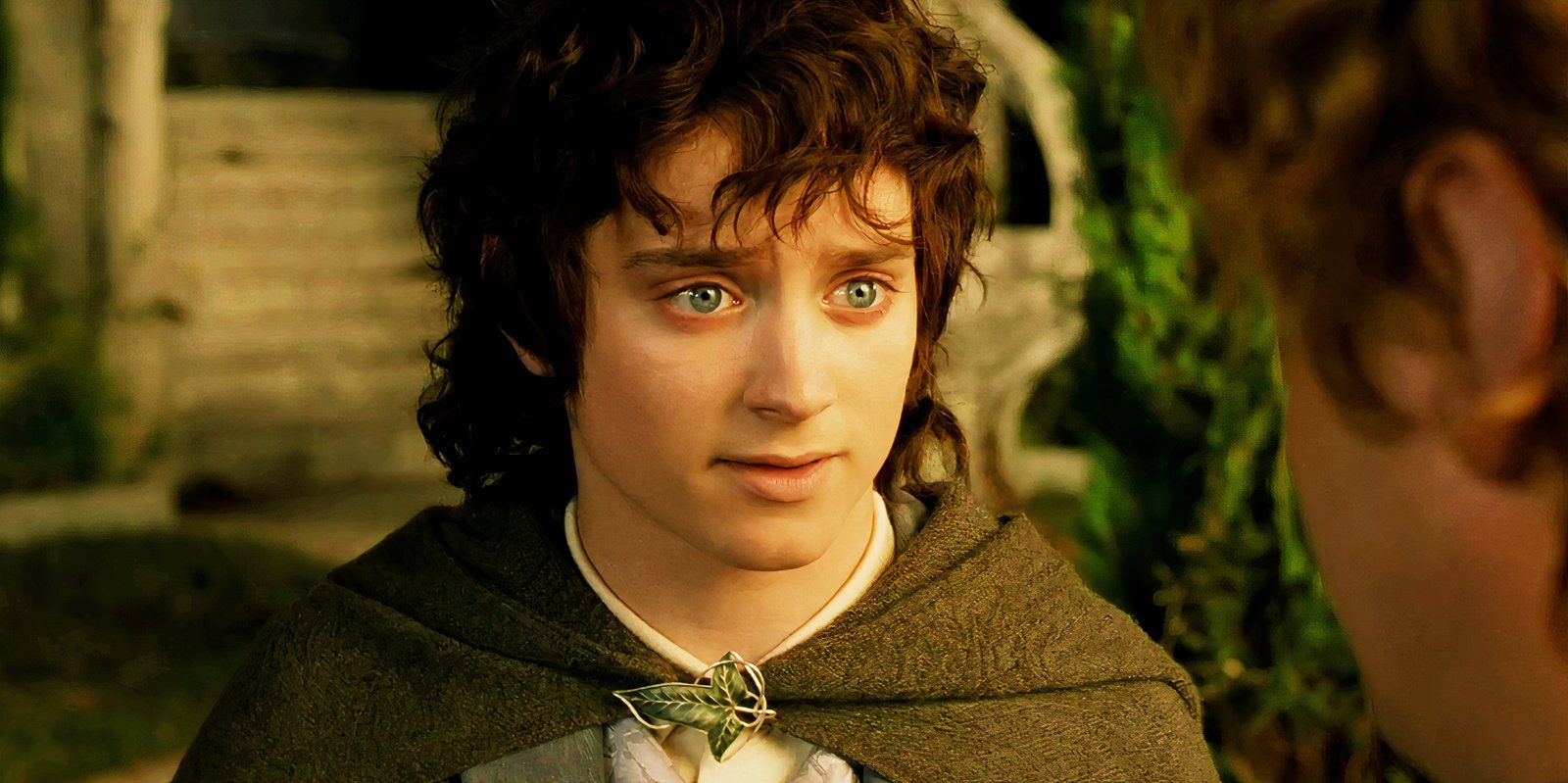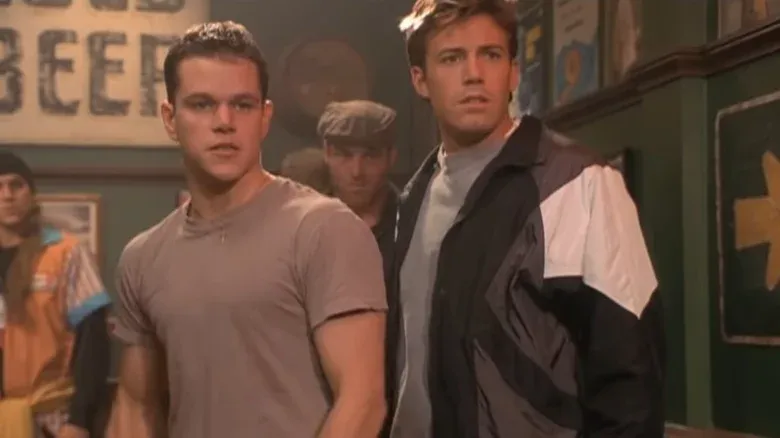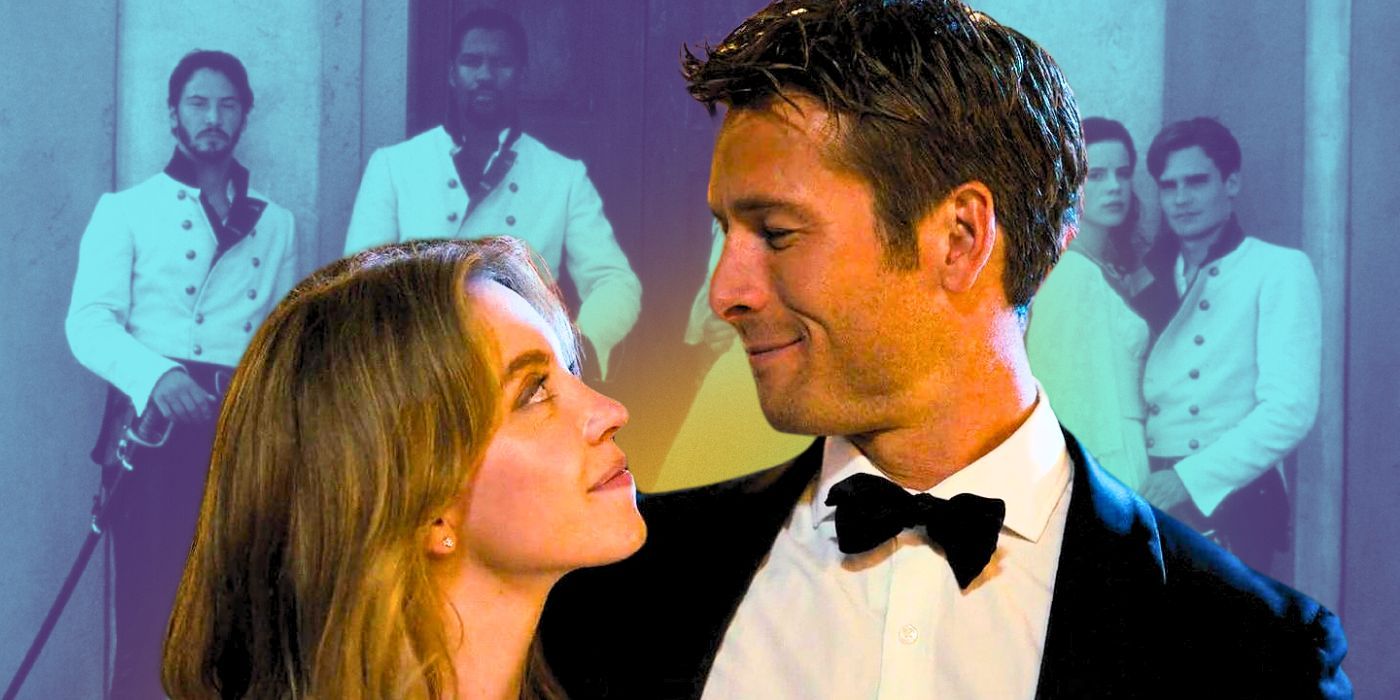Summary
- Anyone but You cleverly adapts Shakespeare's "Much Ado About Nothing" with modern-day rom-com twists and comedic chaos.
- The film pays homage to classic rom-coms based on Shakespeare, like "10 Things I Hate About You" and "She's the Man."
- Through character names, quotes, and themes, Anyone but You effectively references Shakespeare's original work while putting its own spin on the story.
In their new romantic comedy, Anyone but You, actors Sydney Sweeney and Glen Powell are actually adapting one of Shakespeare's most popular comedies, "Much Ado About Nothing." Anyone but You is a rom-com that follows Bea and Ben, two people that form a somewhat meaningful connection that is quickly and accidentally broken. Later, Bea and Ben reunite when their mutual friends are getting married, and to meet their own ends, they decide to pretend that they are in a relationship. Comedic chaos ensues from there.
It's far from a new idea to create romantic comedy movies inspired by or based on the works of Shakespeare. In the 1990s and early 2000s, there were various rom-com movies that used Shakespeare as their source material. Some of the most popular include 10 Things I Hate About You, which adapts "The Taming of the Shrew," and She's the Man, which is a modern retelling of "Twelfth Night." Furthermore, Shakespeare is not the only classic writer to have his stories adapted for the modern day. The iconic Alicia Silverstone film, Clueless, is an adaptation of Jane Austen's "Emma."

Where To Watch Anyone But You
Anyone But You's release provides a chance to see Glen Powell and Sydney Sweeney's R-rated rom-com, and here's how to watch it in theaters or at home.
Anyone But You Is Loosely Inspired By William Shakespeare's Much Ado About Nothing
A comedy thought to be written in 1598 or 1599
A recent example of a modern movie retelling of a Shakespeare story is Anyone but You, which adapts Shakespeare's comedy, "Much Ado About Nothing." The main aspect of the story that the movie brings to life is the plotline between Shakespeare's characters Benedick and Beatrice. Although the two seemingly dislike each other, constantly bantering and insulting each other, it is clear that their dislike actually holds a much deeper and different feeling. Over the course of the play, the other characters try to get Benedick and Beatrice to be together, until eventually, they finally confess their love for each other.
Anyone but You is not the first movie to adapt "Much Ado About Nothing." The first on-screen English adaptation of the play was a retelling set in Shakespearan times, entitled Much Ado About Nothing, and released in 1993. Real-life husband and wife, Kenneth Branaugh and Emma Thompson, played Benedick and Beatrice respectively. In 2011, Joss Whedon directed a second direct adaptation in a modern, Italian mob setting, starring Alexis Denisof and Amy Acker. The other major on-screen version of the play was the filmed 2011 performance at the Globe, notably starring David Tennant and Catherine Tate as Benedick and Beatrice.
David Tennant and Catherine Tate are a notable pairing because of their past work together on the BBC sci-fi hit, Doctor Who.
How Anyone But You References Shakespeare's Much Ado About Nothing
In general, Anyone but You is a fairly loose adaptation of Shakespeare's "Much Ado About Nothing." The most obvious connection is the Benedick and Beatrice plotline.
Ben and Bea trace the same general course as Benedick and Beatrice do, starting off as enemies of a sort, sharing witty and aggressive banter, before their peers try to bring them together, and ultimately, they do admit their feelings to each other at the end of Anyone but You.
Furthermore, Anyone but You emphasizes the main themes of the Shakespeare play, which are trickery and secrets. Throughout the film, information is skewed and utilized for individuals' unique motives.
Anyone But You's Character Names References Much Ado About Nothing
One of the biggest references to "Much Ado About Nothing" Anyone But You uses is the names of its main characters. As previously mentioned, Shakespeare named his characters Benedick and Beatrice. In Anyone But You, Glen Powell and Sydney Sweeney's characters are called Ben and Bea, which are shortened versions of Shakespeare's names. As it turns out, the main characters are not the only ones with names that match the source material. Anyone But You's cast of characters also include a Claudia, Leo, and Margaret, all of whom have matching names in "Much Ado About Nothing," (Claudio, Leonato, and Margaret).
Anyone But You Directly Quotes Much Ado About Nothing
If the story and characters were not close enough to the story, Anyone But You actually quotes the original play as well. There are several moments within the movie when characters say lines that appear in Shakespeare's "Much Ado About Nothing," or certain props have the lines written on them. Some examples are listed here:
- "Some cupids kill with arrows and some with traps." Pete, talking to his stepdad Roger.
- "Assume thy part in some disguise." A sign in Anyone But You.
- "I love you with so much of my heart that none is left to protest." Halle, during her wedding vows.
When certain characters quote Shakespeare in Anyone But You, they tend to say "I just made that up," right after, furthering the easter egg.
Anyone But You's Themes & Story References Much Ado About Nothing
One of the ways that Anyone But You references "Much Ado About Nothing" is through its themes and tropes. The Shakespeare comedy is centered on the idea of eavesdropping, tricks, and miscommunication, and Anyone But You inserts these ideas seamlessly. The story is not just about Ben and Bea hating then loving each other, but is also about the chaos surrounding them and the ways in which characters hide the truth for good or bad reasons. Ultimately, the inclusion of Shakespeare's original drama and irony is what makes Anyone But You is a strong Shakespeare adaptation.
Anyone But You's Ending Spells Out The Much Ado About Nothing Inspiration
If all of the above did not clarify Anyone But You's Shakespearean source material, the movie ultimately reveals its inspiration during its final moments. At the end of Anyone But You, there is a sign that reads out "Much Ado About Nothing." By far, this is the most obvious connection between Anyone But You and "Much Ado About Nothing." While some audiences may miss this easter egg, others who noticed it will undoubtedly be able to see that Anyone But You is a rather obvious modern retelling of the Shakespeare comedy.
How Anyone But You Is Different From Much Ado About Nothing
Ben and Bea are the only focus
What Anyone But You fails to adapt from "Much Ado About Nothing" is the play's second main plot between the characters Claudio and Hero. Claudio has been in love with Hero since before he went to war, and now intends to marry her. However, his plans are halted when Don John makes Claudio think Hero has been disloyal to him by sleeping with another man. Ultimately, Halle and Claudia's marriage is something of a Claudio and Hero insert, however, Anyone But You doesn't dive nearly as deeply into their story as it does the story between Ben and Bea.
What Anyone But You's Writer Has Said About its Much Ado About Nothing Comparisons
Ilana Wolpert studied English in college
While there are countless parallels to "Much Ado About Nothing" in Anyone But You, the movie's screenwriter has certainly not tied down the movie as simply being a Shakespeare adaptation.
In an interview with Variety, Ilana Wolpert noted that Anyone But You is inspired by "Much Ado About Nothing," which she calls "the perfect enemies-to-lovers story."
However, she also mentions other literary adaptations as inspiration, such as 10 Things I Hate About You, Clueless, and She's the Man. Overall, Wolpert revealed that she wanted Anyone But You to revolve around the difficult love lives of those in their 20s.







